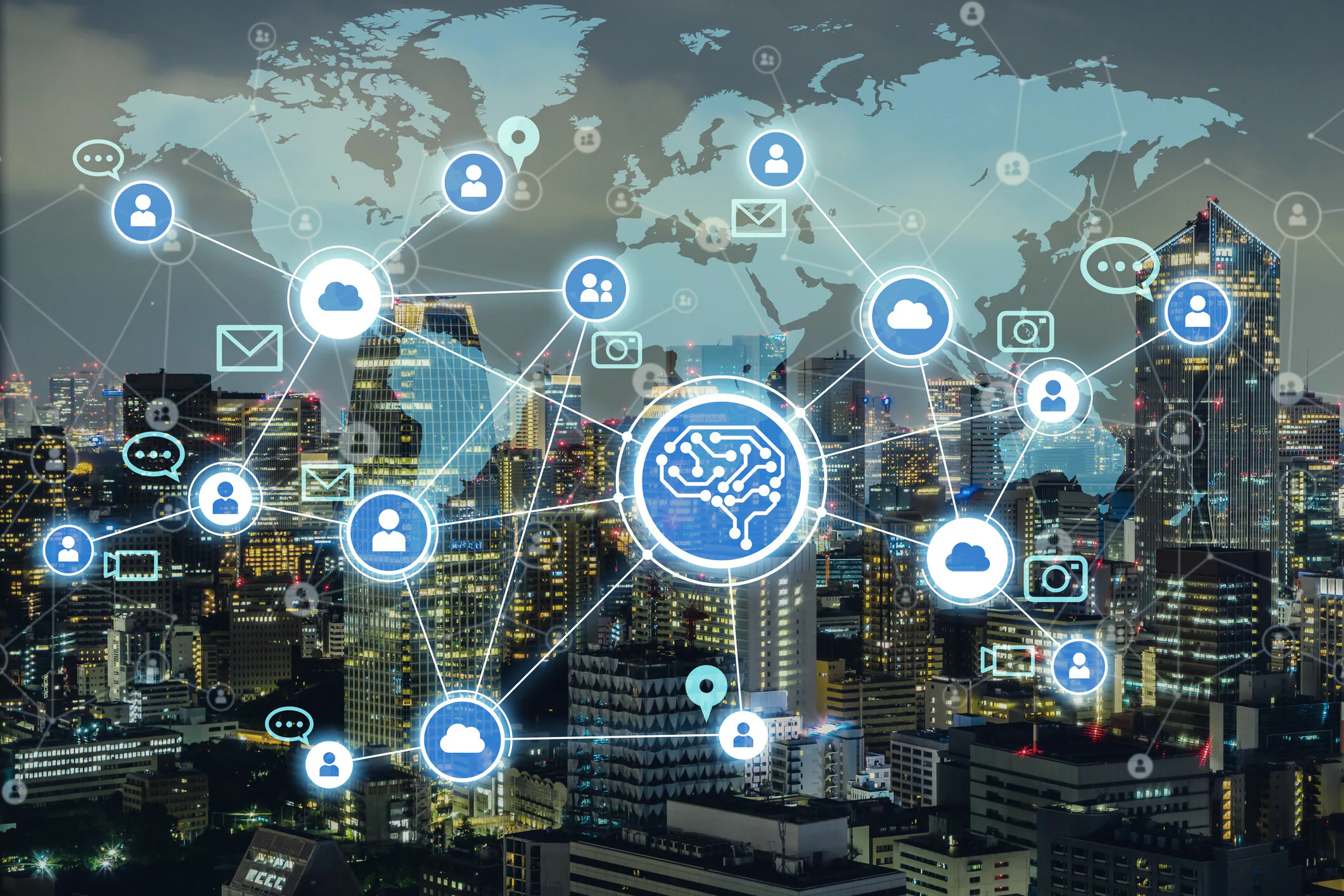Artificial Intelligence (AI) is quietly transforming how the world interacts, collaborates, and solves its greatest challenges. Decades after the dream of globalisation promised open markets and international cooperation, nations now find themselves fragmented by economic nationalism and digital protectionism. Yet, in the background, an unexpected unifier is emerging. AI — borderless, participatory, and adaptive — is weaving a new form of global cohesion that transcends governments and treaties. Its growing influence suggests a shift from political integration to intelligent interdependence — a world connected not by trade routes but by shared algorithms.
1. The Rise of AI Mutualism and Borderless Collaboration
Unlike the industrial engines of globalisation, which relied on state policies and capital flows, AI grows through shared knowledge and open data. A large language model developed in San Francisco can help healthcare workers in Kenya diagnose rare diseases or assist students in Vietnam to learn coding. This network of intelligence is inherently cooperative: programmers from conflict zones contribute to global codebases on GitHub, and entrepreneurs in developing nations use machine learning tools to reach international clients.
These patterns reveal a remarkable shift in how innovation is distributed. AI tools such as TensorFlow, Hugging Facey OpenAI APIs are accessible worldwide, breaking down barriers that once limited technological access to wealthy nations. The result is a quiet revolution of inclusion. A teacher in Lagos, a designer in Bogotá, or an engineer in Jakarta can now collaborate on the same digital infrastructure as teams in Silicon Valley. According to studies from UNESCO, AI-driven education platforms have already improved learning access for millions of marginalized communities.
The power of this transformation lies not in central authority but in distributed intelligence. The open-source community acts as a global commons — a space where ideas evolve without geopolitical permission. This is not globalization 2.0; it is co-intelligence, a new phase where data, creativity, and human curiosity merge into shared progress.
2. Ethical Balance: Power, Bias, and Digital Equity
However, AI’s promise of inclusivity is not guaranteed. Unequal access to compute resources, data biases, and language disparities risk reinforcing the same inequalities that globalization failed to resolve. Algorithms trained on Western-centric datasets can misinterpret cultural nuances or exclude underrepresented populations. That is why building fair and transparent systems is crucial for ensuring that AI serves everyone, not just the privileged few.
Global initiatives are emerging to confront these challenges. The OECD AI Policy Observatory is working on ethical frameworks that promote transparency and accountability in algorithmic design. Meanwhile, regional projects like India’s Bhashini y Africa’s AI Research Centers are creating tools that support local languages and contexts. This approach decentralizes AI development, ensuring that smaller nations and communities have an equal voice in the digital ecosystem.
Moreover, ethical AI depends on the participation of civil society. Nonprofits and advocacy groups are pressuring corporations to disclose data sources, reduce environmental impacts, and create equitable access to AI education. The Future of Life Institute emphasizes the need for governance models that combine innovation with moral responsibility. If fairness is embedded early into AI systems, the technology can become a tool for empowerment rather than exclusion.
3. Intelligent Diplomacy and the New Global Commons
Beyond economics, AI is redefining diplomacy itself. Traditional alliances are giving way to collaborative networks of researchers, policymakers, and technologists. Governments now appoint AI attachés, form task forces, and engage in digital diplomacy that transcends conventional borders. Instead of treaties on tariffs, nations are negotiating data-sharing agreements and ethical standards.
AI’s global impact extends to crisis management, environmental protection, and healthcare coordination. During recent humanitarian emergencies, predictive algorithms guided resource distribution and optimized supply chains. In education, platforms powered by adaptive AI helped bridge gaps created by the pandemic. These achievements reflect a deeper truth — AI is not merely a tool but a framework for human collaboration. According to the World Economic Forum, nations that invest in AI cooperation are already seeing measurable boosts in innovation and resilience.
The rise of “intelligent multilateralism” could mark the next evolution of international order. Instead of power blocs defined by territory or ideology, the future may belong to networks of shared intelligence. From open databases that track climate patterns to global collaborations in medicine and design, the world is moving toward a digital commons — a space where unity is written in code rather than ink.
In this sense, AI may be completing what globalization began but never finished. It is building bridges where institutions have failed, offering a new kind of solidarity grounded in information, not ideology. The critical challenge is ensuring that this connected future remains fair, transparent, and human-centered — before monopolies and misinformation turn it into another tool of division.







